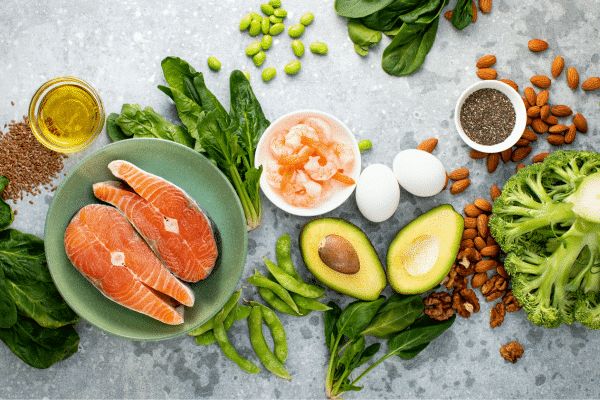Age-related macular degeneration, or AMD, is a disease that already affects more than 1.5 million people in Poland. At an advanced stage, it can lead to profound visual impairment. Following a proper diet can be helpful not only in treating AMD, but also in preventing the disease.
Does diet help treat macular degeneration?
Proper nutrition can help reduce the risk of developing age-related macular degeneration, as well as help stave off the disease. A properly composed diet should include a minimum of two servings of carotenoid-rich vegetables. In addition, it is also recommended to eat oily sea fish - which contain valuable omega 3 fatty acids.
Food products indicated in the treatment of AMD
A well-balanced diet recommended for macular degeneration is easy to digest and low in fats, even healthy ones. Instead, it is dominated by vegetables - greens, yellows and oranges, plus sea fish and whole-grain products.
Vegetables and fatty marine fish
Vegetables are a natural source of many vitamins and trace elements that are essential for our bodies. Eating fresh vegetables is important in a varied diet, but is especially important for people with eye diseases, including AMD.
Green, yellow and orange vegetables contain carotenoids(lutein and zeaxanthin), essential for the proper functioning of the macula of the eye. Carotenoids are potent antioxidants that are part of the macular pigment. They protect the retina from the harmful effects of blue light and free radicals. With age, the concentration of lutein and zeaxanthin in the macula decreases, and is particularly low in AMD sufferers. This is why supplementation with natural carotenoids is so important in the treatment of macular degeneration.
To supply the body with lutein and zeaxanthin, it is worth eating vegetables such as kale, spinach, lettuce, broccoli, pumpkin, Brussels sprouts, green peas, zucchini, yellow and green peppers, cabbage, green beans, leek, carrots and tomatoes.
Carotenoids are substances that are fat-soluble, so small amounts of cold-pressed oil or extra-virgin olive oil should be added to vegetables.
Marine fish, such as salmon, mackerel, sardine and herring, are natural sources of omega-3 unsaturated fatty acids. Scientists are divided over the effect of these acids on the treatment of AMD, but recently opinions have prevailed that they are essential for the treatment and prevention of macular degeneration.
Which products to avoid with AMD?
Partially hydrogenated fats (trans fats), especially coconut oils, should be eliminated from the diet of people affected by AMD or at risk of developing the disease in the first place. They are found in highly processed snacks such as store-bought cookies, candy bars, potato chips, crisps and other such products.
You also need to avoid too much meat in your daily meals, and it's best to give up raw meat altogether. Sweetened sodas and alcohol are also on the censored list.
Movement and healthy lifestyle support AMD therapy
AMD patients need to keep their overall health in check - maintaining normal blood pressure and controlling other comorbidities. Regular physical exercise is also advisable.
To protect your eyes from the harmful effects of strong light, it is recommended to use sunglasses with a UV filter - even in low sunlight.

